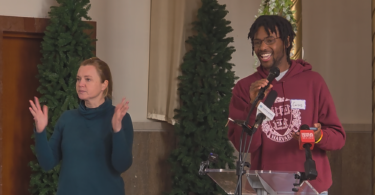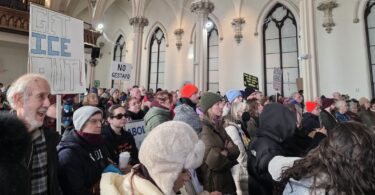Upper Marlboro, Maryland, U.S.A. – For several years, I’ve watched as court rulings and legal maneuvers in America chipped away at our civil and human rights and eroded our freedoms.
The problem is getting worse, and instead of Americans banding together to protect each other, people have turned against each other.
Listen to the author read this commentary:
In June 2023, I went to Liberia to mourn my grandfather. I did not know that I would return to Maryland mourning America, too.
From my parent’s home in Paynesville, Monrovia – a neighborhood in the capitol city of our native Liberia – I sat glued to a laptop hooked to a compact traveler’s Wifi box. I was anxious for news of the U.S. Supreme Court’s ruling on affirmative action.
I emailed friends and browsed the web for updates. For a while, there wasn’t much, only predictions of how the Court might rule.
But, I was pretty sure that affirmative action – a practice intended to consider the historical, cultural, and economic challenges minorities and women face – was going to be ruled unconstitutional and barred from the college admissions process.
I do not believe the use of affirmative action or diversity, equity and inclusion initiatives hurt the groups who historically have access to resources. Those resources are abundant.
Using the tools of affirmative action and DEI doesn’t put anyone at a disadvantage. It is about letting others know that those of us who don’t have advantages are still here; that our experiences, and stories are valid, too.
But it’s important to note that many Asian students’ college applications can face extensive scrutiny because of an opposite problem – the ‘Smart Asian’ stereotype. According to the Pew Research Center, this stereotype falls into the larger belief that Asian Americans are model minorities.
The model minority stereotype characterizes Asian Americans as docile and economically and educationally successful in comparison to other minority groups, like Black and Hispanic Americans.
It is typically used to downplay Asian Americans’ experiences with racism, discrimination, and mental health struggles.
So when the use of affirmative action in college admissions became illegal on June 29, 2023, I felt suffocated, like the cold concrete floor of the room I shared with my siblings was rising and the ash-gray walls were closing in on me.
I had felt similarly before.
In January 2022, when the U.S. Supreme Court overturned Roe v. Wade, a 1973 landmark case that protected a woman’s right to get an abortion regardless of how she conceived.
In 2021, when Asian Americans were being harassed because of baseless claims that people of Asian descent started covid-19.
In 2020, when I watched white protestors storm the U.S. Capitol on January 6 in an effort to overturn our national election results. I knew the protestors would not have made it past the fence had it been anyone else – had it been me.
And in all of the instances of police brutality, the -isms, the claims of “stolen elections” and removal of DEI initiatives that took place in the time between.
What we are seeing in America today is the consequence of our own silence when injustice occurs simply because we are not the affected group.
And we will keep seeing it if those who are not directly affected fail to speak up, if we do not empathize with struggles other than our own.

Many thought Trump’s crackdown on border crossing and immigration would primarily affect the Hispanic community, as if that was okay.
Now we see it affecting international students, globally decorated teachers, proponents of free speech, and critics of the current administration who happen to be born somewhere other than America.
But, isn’t that everyone? Unless you are Indigenous, someone, somewhere in your family took a risk to get you here.
So, why do we detach ourselves from America’s issues when it seems like it doesn’t concern us?
Why are we comfortable ostracizing each other? Making things an Asian or Black or white or Hispanic or minority problem? Or a rich or poor or middle-class problem? Or a liberal or conservative problem?
Any issue faced by one of us is faced by all.
And it is selfish to think otherwise.
My dad says it best, “You can’t live in peace if the people around you are suffering.”
Regardless of who is experiencing the injustice, it should be acknowledged.
Even if you can not contribute to the solution, you can empathize. So, that one day –whenever it comes – when you are the target and cannot speak for yourself, you will have someone who remembers your kindness and speaks for you.

Although I do not recognize the character of our elected officials, I know that this country has not lost hope. We are resilient.
We find strength in our differences, create new cultures from our shared experiences and celebrate our hardships while striving for a better life because we are American.
That is what being American means.
Dorothy Quanteh is a Junior Reporter with Youth Journalism International.



